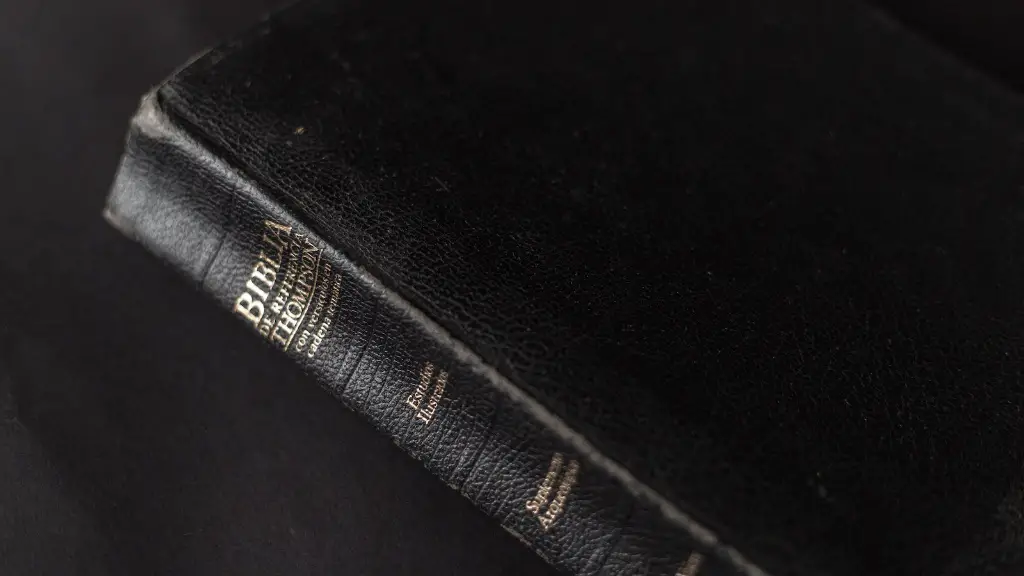The Book of Enoch, also known as 1 Enoch, is an ancient Hebrew religious work, thought to have been written during the third or fourth centuries BC. According to the traditional narrative, the Book of Enoch was first brought to the world by a great-grandfather of Noah, who received it from Adam. Despite the fact that it is not included in the Canon of the Bible, scholars agree that the contents of the book hold genuine, valuable information about the events shortly after the great flood.
The Book of Enoch is often seen as a precursor to the New Testament, because it contains many stories that are foreshadowing the message of the gospels. It bridges the gap between the Old and the New Testaments and opens the doors to the realm of spiritual realm of the afterlife. For example, like in the Bible, the Book of Enoch describes the fall of angels and their imprisonment in the earth; however, unlike the bible, it offers a more vivid description and insight into the issues while giving a much more powerful account of the wickedness unleashed by their sins.
The book is arranged into five parts,which are divided into smaller parts, each describing a certain subject.Among them,the most important sections are the Book of Parables and the Book of the Luminaries. The Book of Parables contains numerous stories, parables and prophecies about the future of the world, the coming of the Messiah, the sins of the people and their consequences, and about the fate of those who would reject Him. The Book of Luminaries is a detailed account of the heavenly bodies.
Most religious scholars agree that, even though the Book of Enoch is not included in the Bible, it offers invaluable insight into the world of faith and the Old Testament scriptures. Christian and theological scholars have used it as an interpretative tool, illuminating and clarifying the teachings and ways of the ancient world. For example, the Book of Enoch describes the fate of the wicked and corrupt leaders, who will be punished on the day of Judgment, which is an integral part of the Christian belief.
Unfortunately, in the modern world the Book of Enoch has been largely forgotten, except by a few scholars who consider it as a valid source of knowledge. Some of them claim that it is a source of great wisdom, despite being excluded from the canon of the Bible.They suggest that, by reading it and meditating on its contents,we can observe our own lives and the course of the world from a different perspective. The Book of Enoch can be read for both scientific and spiritual purposes and it still provides an interesting source of knowledge and contemplation to this day.
Textual Integrity
Strong evidence points towards the Book of Enoch having been written by a single author, and textual analysis shows the book’s relative unity and authority. Despite the apparent differences between some passages and the stylistic differences throughout the book, it follows a well-structured structure and seems to be the result of continuous editing and development.
Textual integrity also helps to explain why the Book of Enoch was excluded from the Bible. Its unique literary structure, which includes the detailed description of demonic activity, its numerous quotations from other ancient books and its references to God’s judgment on the corrupt, likely made it incompatible with the bible’s narrative.
The Book of Enoch is also known for its discussions of eschatology, which is focused on the End of Days and the coming of the Messiah. The book does not follow a single narrative but weaves multiple stories together to form a larger, unified vision of the future. This future vision is depicted in vivid detail, including angels, wars, earthquakes and other disasters, and it indirectly hints at the arrival of God’s Kingdom on earth.
Authenticity and Origin
The authenticity of the Book of Enoch has long been debated. Some scholars have argued that the book is a forgery and suggest that it was written by Jewish Gnostics in the 2nd century CE. Others, however, believe that the book is an original Hebrew text, written by a single author dating back to the 3rd or 4th century BC.
No conclusive evidence exists to verify the origin of the book, and its authenticity is still the subject of heated debates. Some scholars point to the unmistakable similarities between the Book of Enoch and the Old Testament, which suggest that it was written by Jews strongly influenced by their ancestor’s religious traditions. Others argue that the Book of Enoch was written by non-Jews who were attempting to bridge the gap between their own spiritual beliefs and the religion of the ancient Israelites.
Still, the Book of Enoch is widely accepted as an authoritative text and has been included in the Apocrypha. This collection includes books of scripture that are not found in the Bible, but are important to many religious traditions, such as the Church and the Jewish faith. Due to its authenticity and relevance, the Book of Enoch remains an essential part of Biblical studies.
Influence on Christianity
The Book of Enoch has had a considerable influence on Christianity, with many passages from the book featuring prominently in the New Testament. In particular, Jesus’s teaching of the Coming Son of Man, the figure thought to herald the appearance of the Messiah, draws heavily from the Book of Enoch. Numerous other Christian traditions, such as the concepts of divine judgement, punishment for the wicked and the final resurrection also draw on themes first established in the Book of Enoch.
Furthermore, many aspects of the Christian tradition that were once rejected by early church fathers, such as the reality of fallen angels, reincarnation and the soul’s immortality, were later embraced by Christian theologians and credited to the Book of Enoch. This demonstrates that the Book of Enoch has had a profound influence on Christianity, and on its modern form, despite it being excluded from the Bible.
Relationship with Judaism
The Book of Enoch is closely related to Judaism and has been seen as an integral part of the faith since biblical times. Many verses in the Old Testament reference the Book of Enoch, and it is referred to several times in the Talmud. Furthermore, a collection of ancient Jewish religious texts known as the Dead Sea Scrolls contains several references to the Book of Enoch, as well as some passages that are identical to those found in the book.
The relationship between the Book of Enoch and Judaism is complex, and the ancient rabbis had significantly different interpretations of the book’s contents. Nevertheless, it is clear that the Book of Enoch has been an important part of the Jewish faith and culture, shaping their understanding of the Old Testament and the world around them.
Perspectives of Scholars
The Book of Enoch is a topic of ongoing debate among biblical and theological scholars. While some claim that the book has a genuine, long-standing historical presence in Jewish and Christian faiths, others argue that it is a forgery. Scholary perspectives largely depend on the historian’s own interpretation of the book and its purpose and significance.
Despite the different opinions, the scholars agree that the Book of Enoch is an important source of insight about specific issues mentioned in the Bible, such as the nature of angels and their relationship with humans. Moreover, scholars tend to agree that the book is a valuable testimony of ancient religious and spiritual beliefs and should be respected.
Contemporary Significance
Despite its exclusion from the Bible, the Book of Enoch continues to have a powerful impact on contemporary religious beliefs. Even today, many Christian denominations and independent faith groups use the book as a source of spiritual guidance and teachings. Its significance is also recognized by Jewish and Islamic authors, who have both included it in their canonical texts.
Furthermore, the Book of Enoch has inspired a variety of alternative religious movements, such as the Gnosticism. These groups consider the book to be a legitimate source of ancient wisdom and a vehicle for spiritual exploration. Therefore, the Book of Enoch remains an important influence on contemporary religious beliefs and practices.
Modern Relevance
In recent years, the Book of Enoch has seen a renaissance in the modern world. New translations and commentaries of the book have been released and it is being studied by both academics and laypeople. This renewed interest in the Book of Enoch reflects its ongoing relevance and importance as a source of ancient spiritual knowledge.
As a result, the Book of Enoch has gained an important place in the hearts and minds of some religious denominations. It is referred to as a legitimate source of knowledge and inspiration, and its vivid account of the coming of the Messiah and the end of the world remains pertinent in today’s challenging times.
Conclusion
The Book of Enoch is a mysterious and controversial book of the Bible, which was written in a distinctly Jewish style and contains vivid descriptions of the End of Days. Even though it has been excluded from the canon of the Bible, it has had a strong influence on religious beliefs and practices. Its interpretations are debated by scholars and theologians, who often come to different conclusions regarding the book’s authenticity, origin and purpose.
However, the Book of Enoch has recently seen a rebirth in the modern world, gaining relevance to contemporary religious beliefs and practices. It has become an important part of the Apocrypha, and many religious denominations, such as the Church and Judaism consider it as a legitimate source of knowledge. Ultimately, the Book of Enoch still offers invaluable insight into the history and culture of ancient faith, and its message remains pertinent in today’s world.





